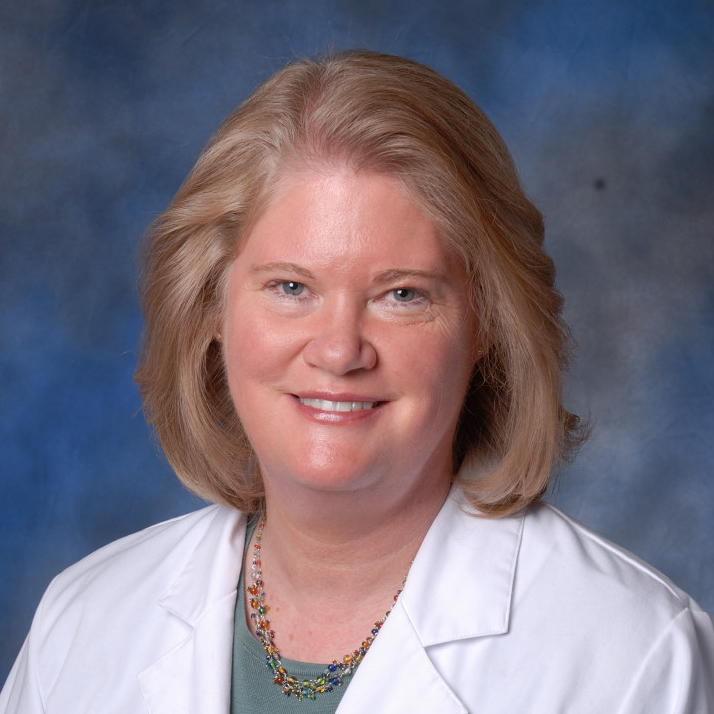
Marla Ahlgrimm
Marla Ahlgrimm fields questions regarding hormone replacement therapies and their inclusion in the effective treatment of PMS, perimenopause, and menopause.
Q. Is HRT therapy right for all women?
Marla Ahlgrimm: Not necessarily; some women may have other factors that spur their discomfort.
Q. Do all women receive the same dosage or combination of replacement hormones?
Marla Ahlgrimm: No, each woman is examined and a course of treatment tailored to her specific needs.
Q. What does hormone replacement consist of?
Marla Ahlgrimm: Typically, progesterone and/or estrogen combined with testosterone or a similar androgen such as DHEA.
Q. Is estrogen really important past the childbearing stage?
Marla Ahlgrimm: Estrogen and other similar hormones (estriol, estrone, and estradiol) are found in over 300 areas of a woman’s body throughout life.
Q. Is estrogen an absolute cure for hot flashes, vaginal dryness, and other menopause related issues?
Marla Ahlgrimm: No, there are no guaranteed remedies for menopausal discomforts but with the right combination of self-treatment and medically guided therapy, many women experience fewer and less intense physical reactions to “the change.”
Q. There are patches, creams, and tablets available for estrogen administration. Which is the best?
Marla Ahlgrimm: It depends on personal preference, physical reaction, and affordability.
Q. How are estrogen vaginal creams beneficial?
Marla Ahlgrimm: Women who suffer from stress incontinence or vaginal irritation may find faster relief with a localized application.
Q. Is there a difference between synthetic and natural hormones?
Marla Ahlgrimm: Natural simply means that it mirrors the body’s production of the hormone identically; it is still lab-created. Synthetic hormones are very similar to the naturally occurring hormones but the slight differences on their chemical makeup are vastly important to the body.
Q. Aside from estrogen, what other hormones are available by prescription?
Marla Ahlgrimm: Testosterone, progesterone/progestin, and estradiol are all also available.
Q. Who would be a candidate for testosterone treatments?
Marla Ahlgrimm: Women suffering from a waning sex drive.
Q. What is cyclical HRT?
Marla Ahlgrimm: Cyclic therapy is when a woman takes a daily dose of estrogen but only two weeks of progesterone.
Q. What is taken during continuous treatment?
Marla Ahlgrimm: Both hormones are taken together each day every day of the month
Q. Is one more effective that the other?
Marla Ahlgrimm: They each have their benefits to the women who take them. Continuous therapy offers less in the way of side effects for many.
Q. What issues have been reported with the cyclic method?
Marla Ahlgrimm: Some women report heavy bleeding in the beginning of this therapy, which can be a nuisance.
Q. Is the treatment the same for all hormone related issues?
Marla Ahlgrimm: It depends on the needs of the individual woman’s body.
Q. Are there any other uses for progesterone?
Marla Ahlgrimm: Progesterone has also been used effectively for the treatment of abnormal menstrual bleeding.
Q. Aside from HRT, how can a woman manage symptoms of menopause, such as hot flashes?
Marla Ahlgrimm: Keeping cool and staying hydrated are two easy and very cost effective ways to combat hot flashes.
Q. Are there side effects to progesterone therapy?
Marla Ahlgrimm: One of the most reported side effects of progesterone therapy is drowsiness but when given in low doses women rarely experience any noticeable effects beyond the benefits.
Marla Ahlgrimm is a Wisconsin pharmacist and leader in the field of women’s health. She has studied hormone disorders for over 35 years and was one of the first medical professionals to categorize PMS as a treatable condition. Until that time, U.S. physicians considered woman -specific ailments psychosomatic. In the late 1970s, Marla Ahlgrimm began compounding HRT treatments that are still used today. To women experiencing cyclic patterns of moodiness, fatigue, headaches, or other discomforts, Marla Ahlgrimm offers this advice: Don’t dismiss your severe PMS symptoms. Visit a doctor who will value you as a patient with needs, not complaints.
For more information or to contact Marla Ahlgrimm, visit her online at marlaahlgrimm.com.
Marla Ahlgrimm is a proud member of the APA (American Pharmacy Association) and the University of Wisconsin Women’s Council.
 InformatioNation InformatioNationBlog.com
InformatioNation InformatioNationBlog.com
